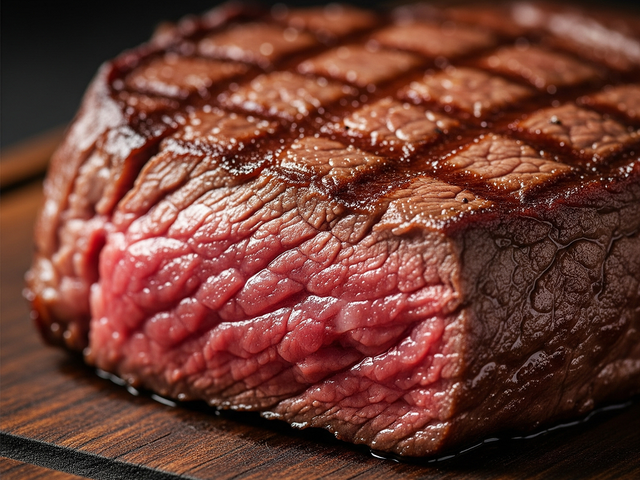Starting the day with health news , readers can also read more articles: Which part of beef has the most protein?; 5 things you need to do before it's too late ; Tired body, what are the best exercises?...
Discover great walking tips for office workers and the elderly
Elderly people and office workers often sit a lot. This causes many harmful effects on the body, and even sitting continuously for many hours can seriously disrupt blood sugar control.
However, the good news is that recent research has found that breaking up long periods of sitting with short periods of exercise can significantly improve blood sugar control, says Dr. Mark Hyman, medical director of The UltraWellness Center. Dr. Hyman advises: Older adults who sit a lot or office workers should walk for 3 minutes or squat 10 times every 45 minutes. This will help people who sit a lot regulate blood sugar more effectively than walking 30 minutes a day.
Older people who often sit a lot or office workers should walk for 3 minutes or squat 10 times every 45 minutes.
Photo: AI
In a study published last April in the Scandinavian Journal of Medicine & Science in Sports , scientists from the University of Jyväskylä, the University of Southeastern Finland, and Zhejiang University, Hangzhou (China) wanted to find out whether squatting or walking is more effective in regulating blood sugar levels in people who sit a lot.
Participants were people who often sat a lot - about 8.5 hours/day, divided into 4 groups:
- Group 1: Walk 30 minutes a day.
- Group 2: Sitting continuously for 8.5 hours.
- Group 3: Walk at a moderate pace for 3 minutes every 45 minutes.
- Group 4: Squat 10 times every 45 minutes.
The results revealed something surprising: Both groups 3 and 4 had a 21% reduction in blood sugar spikes compared to continuous sitting. The next content of this article will be on the health page on May 29.
Which part of beef has the most protein?
Beef is one of the most important sources of protein, especially for those who exercise or want to gain muscle. However, not all cuts of beef contain the same amount of protein.
Some cuts of beef will contain more fat or water, reducing the protein content per serving. Therefore, choosing the right cut of meat will help the eater optimize the amount of protein absorbed into the body, thereby optimizing nutrition and increasing muscle.
Tenderloin is one of the most protein-rich cuts of beef.
PHOTO: AI
One of the most popular cuts of beef is the ribs. This cut is popular because it is tender and fatty due to its high fat content.
According to data from the United States Department of Agriculture (USDA), rib meat contains about 20-22 grams of protein per 100 grams. Compared to many other foods, this amount of protein is still high. However, it is not as high as lean beef, and it also contains 20-30 grams of fat. This high amount of fat is the reason why the ratio of actual protein to the overall weight of the meat is reduced.
On the contrary, beef parts such as upper rump, lower back, and tenderloin contain less fat and more protein. Specifically, upper rump and lower back have about 27-28 grams of protein per 100 grams of meat. The amount of fat is also significantly lower, only about 5-10 grams. Meanwhile, beef tenderloin also contains 26-27 grams per 100 grams and has less fat than the ribs. These are the best meat parts for gym goers. The next content of this article will be on the health page on May 29 .
Cardiologist: 5 things you need to do before it's too late
A cardiologist has revealed the five essential things we should all do to avoid an early death, and stressed it's 'not just about exercise and eating lots of fruit and veg'.
Dr. Dmitry Yaranov, director of the acute heart failure and heart transplant program at Baptist Memorial Health Care Hospital system (USA) warns that there are 5 unexpected factors that play an important role in cardiovascular health.
Sleeping less than 8 hours a night may increase the risk of heart failure
Photo: AI
After treating thousands of heart failure patients, here are the things I wish more people knew before it's too late, says Dr. Dmitry Yaranov.
Heart health is not just about exercise and eating lots of fruits and vegetables, the cardiologist added. It’s also about sleep, stress, air pollution, dental health, and your gut.
Get enough sleep. Sleeping less than eight hours a night can increase your risk of heart failure, stroke or sudden death, warns Dr. Dmitry Yaranov, according to the Daily Mail.
Blood pressure normally drops during sleep, but poor sleep disrupts this process, causing persistent high blood pressure, a major cause of heart disease, according to the British Heart Foundation.
Limit your exposure to air pollution. Dr. Yaranov also notes that daily exposure to air pollution can harden your arteries, leading to plaque buildup, restricting blood flow and increasing your risk of heart attack. Start your day with health news to see more of this article!
Source: https://thanhnien.vn/ngay-moi-voi-tin-tuc-suc-khoe-loi-ich-bat-ngo-khi-di-bo-3-phut-185250529002132526.htm





























































































Comment (0)